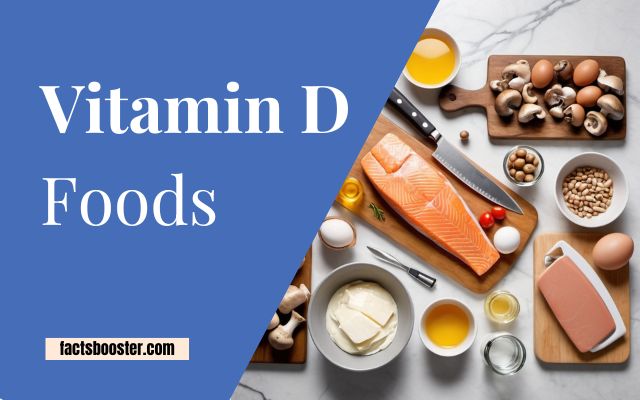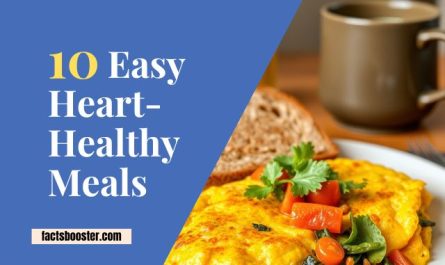Vitamin D stands out as a vital nutrient, supporting bone health and enhancing the body’s absorption of calcium. Unique among vitamins, it can be sourced both from the sun’s rays and the food on your plate. This article zeroes in on the latter, shedding light on nutrient-rich foods that can fortify your daily diet with this essential, often dubbed the sunshine vitamin.
Key Takeaways:
- Vitamin D’s crucial role in health surpasses bone strength, touching on muscle function and immune support.
- Diverse dietary sources available, from fatty fish to fortified cereals, ensure everyone can access its benefits.
- Understanding factors that influence Vitamin D absorption can maximize its nutritional potential.

Benefits of Vitamin D
Vitamin D has garnered recognition for its pivotal role in bone health. By enhancing calcium absorption, it ensures the strength and durability of our skeletal structure. Furthermore, Vitamin D’s influence extends beyond merely fortifying bones.
It has been associated with potential enhancements in muscle strength, reflecting its multifaceted benefits. Equally important, this sunshine vitamin might boost immune functionality, marking it as a key nutrient in our daily intake for maintaining overall well-being.
Vitamin D Foods
Achieving the right levels of Vitamin D hinged heavily on the foods you choose to incorporate into your meals. Nutrient-rich sources are abundant, allowing for a varied diet that caters to both personal taste and nutritional needs.
Dietary sources of the sunshine vitamin span a spectrum from fatty fish to fortified cereals, ensuring that everyone finds suitable options regardless of dietary restrictions. Emphasizing the health benefits, daily intake from natural sources becomes not just a goal but an enjoyable aspect of maintaining overall wellness.
Read more:
Animal-Based Sources
A myriad of animal-based sources stands out for their high biopotency in vitamin D. These nutrient-rich selections have cemented their essential role in safeguarding a balanced diet. Fatty fish, like salmon and tuna, egg yolks, and cod liver oil will immensely boost your daily intake of the sunshine vitamin. Embracing these dietary sources brings a powerful ally to your health regimen, ensuring you reap the nutritional benefits crucial for bone strength and overall well-being.
Fatty Fish (Salmon, Mackerel, Tuna)
Fatty fish have carved out a stellar reputation as nutrient-rich sources of Vitamin D, making them an indispensable part of a health-focused diet. Among the elites are salmon, mackerel, and tuna, celebrated for their substantial Vitamin D content. (1)
A single serving can dramatically boost daily intake, bringing you closer to meeting the recommended levels. Typically, experts suggest a serving size of 3.5 ounces of cooked fish.
Methods such as grilling or baking can preserve its nutritional benefits while enhancing flavor. Incorporating these fish into meals will not only elevate your culinary experience but also fortify your health with essential sunshine vitamin benefits.
Cod Liver Oil
Cod liver oil stood out for generations as an esteemed source of Vitamin D. It has been the focal point for enriching one’s diet with essential nutrients long before the advent of modern dietary supplements. (2)
This golden liquid provides more than Vitamin D; it’s a reservoir of omega-3 fatty acids. Historically, families relied on cod liver oil to ward off rickets, a disease caused by Vitamin D deficiency.
Today, professionals suggest a small dosage, typically a teaspoon or less daily, can suffice. This ensures you harness Vitamin D’s health benefits, vital for bone health, without overstepping safe intake levels. Emphasizing its continued relevance, cod liver oil bridges traditional wisdom with current nutritional science.
Egg Yolks
Egg yolks have long been celebrated as nutrient-rich sources of Vitamin D, making them a staple in daily intake across diverse cultures. Their versatility allows for inclusion in a myriad of dishes, from breakfast options to baked goods. (3)
The nutritional benefits of consuming egg yolks include Vitamin D, essential fats, and proteins, contributing to a balanced diet. For those seeking natural sources of the sunshine vitamin, egg yolks offer a convenient and accessible option.
They embody the health benefits of Vitamin D foods, crucial for bone health and calcium absorption.
Plant-Based Sources
You will have discovered that maintaining optimal Vitamin D levels often hinges on sun exposure and choosing the right dietary sources. For those following a plant-based diet, this challenge intensifies.
Vegetarians and vegans, in particular, need to pay extra attention to their food choices to meet their daily intake requirements for the sunshine vitamin. Fortunately, innovation and awareness have led to an increase in Vitamin D-fortified and natural plant-based sources.
These nutrient-rich options not only support overall health benefits but also ensure that dietary preferences are respected. Among these, fortified plant-based milk and UV-exposed mushrooms stand out as nutritional powerhouses.
They help bridge the gap in nutritional benefits, making a balanced diet rich in essential sources of Vitamin D more accessible than ever before.
Fortified Plant-Based Milk
Fortified plant-based milk alternatives had become pivotal in the journey towards meeting daily intake requirements for Vitamin D.
In a world where dietary choices are evolving, these nutrient-rich sources cater not just to vegans and vegetarians, but to anyone looking to diversify their sources of nutrients. Each serving pours essential nutrients into your diet, making it easier than ever to achieve your nutritional goals.
Beyond Vitamin D and calcium, these beverages often include additional vitamins and minerals, enhancing their health benefits even further. The selection available today means you can easily integrate these sunshine vitamin-infused alternatives into your daily routines.
Fortified Cereals
Fortified cereals have emerged as a beacon of convenience for boosting your daily Vitamin D intake. With just a bowl in the morning, families everywhere have found a nutritious start to their day.
These cereals, enriched with the sunshine vitamin, align perfectly with nutrient-rich sources, ensuring everyone, from toddlers to adults, can partake. Such offerings not only enrich your dietary sources but also weave in the essential nutritional benefits Vitamin D is known for.
Serving as an easy, accessible addition to breakfast, these cereals ingeniously combine health benefits with the pleasure of a quick meal. They stand tall as a testament to how modern dietary solutions can cater to nutritional needs effortlessly.
UV-Exposed Mushrooms
UV-exposed mushrooms stand out as a remarkable, plant-based source of vitamin D. These fungi have been exposed to ultraviolet light, which significantly boosts their vitamin D content.
For vegetarians and vegans, this process offers a natural, dietary alternative. Consuming UV-exposed mushrooms can help bridge the gap in nutrient intake. Sunlight triggers the same synthesis of this sunshine vitamin in mushrooms as it does in human skin.
Thus, incorporating these mushrooms into your diet proves an innovative method to enhance your daily vitamin D intake naturally. This source is especially crucial for those following a plant-based diet, ensuring they receive an adequate amount of this essential nutrient.
What Influences Vitamin D Absorption
Fat intake plays a pivotal role in the absorption of Vitamin D, a nutrient crucial for bone health and immune functionality. Since Vitamin D is fat-soluble, diets lacking in healthy fats might impede its absorption.
Sun exposure also significantly influences Vitamin D levels, often termed the sunshine vitamin. Yet, the angle of the sun and skin coverage can hinder its synthesis in the skin. Various health conditions, including disorders affecting the liver, kidneys, or intestines, could further affect Vitamin D uptake.
Individuals grappling with these issues often require a balanced approach, including dietary adjustments and, in some cases, supplementation. Acknowledging these variables ensures a comprehensive understanding of maintaining optimal Vitamin D levels through both natural sources and fortified foods.
Conclusion
Integrating Vitamin D-rich foods into your diet marks a crucial step towards nurturing your health. Sunshine vitamin nutrients, available through both natural sources and supplements, are essential for everyone. Some, especially those at risk for deficiency, might require additional intake to meet their daily needs.


